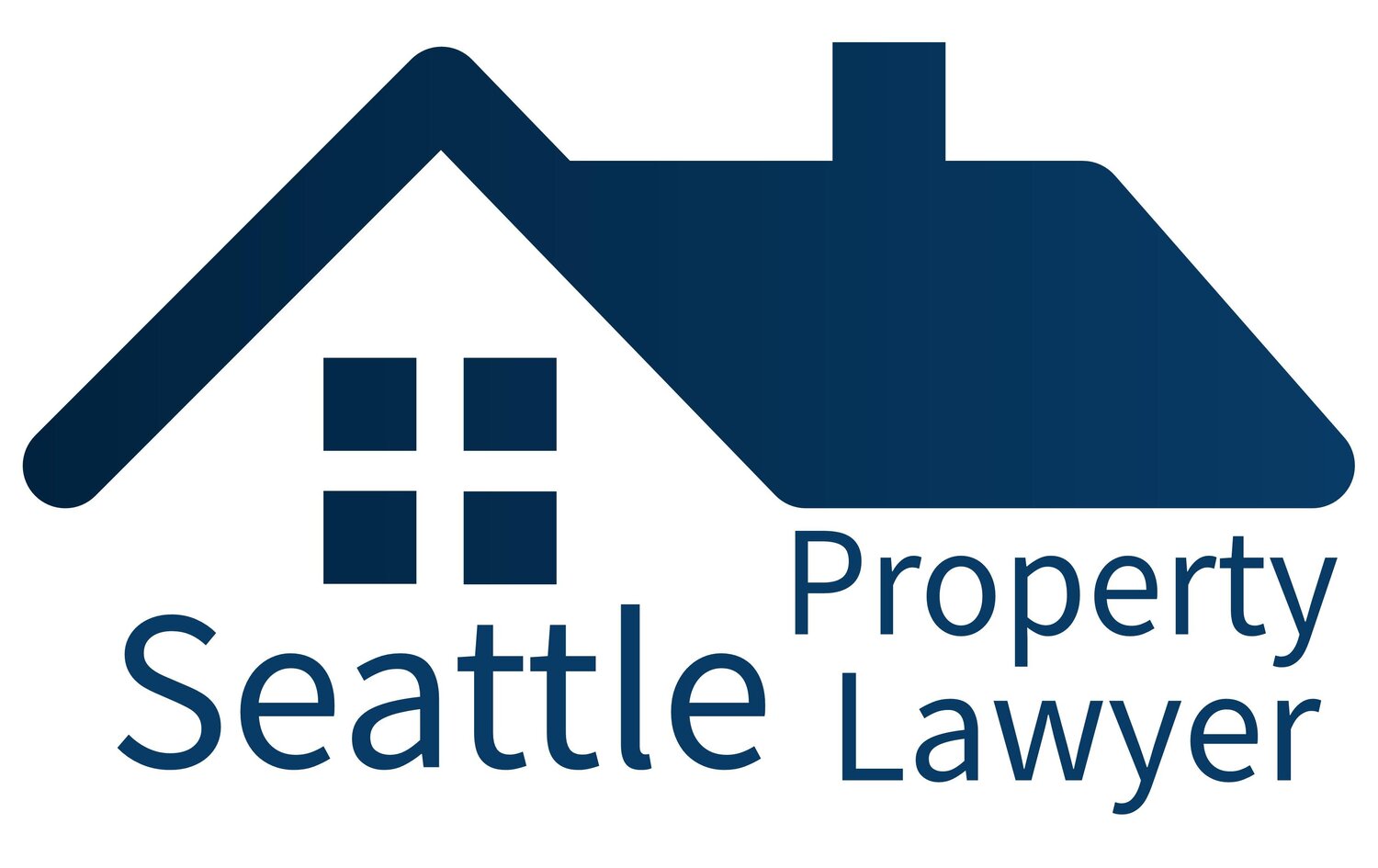How to For Sale By Owner: 6 Steps to FSBO Success, Step 5 Sell It
/Thinking of selling your home without using a real estate agent? You've found a great resource. I am a real estate attorney, as well as a licensed real estate broker, and I've helped hundreds of successful home buyers and sellers.
Craig provides the following insight for informational purposes only, and without any warranty or guarantee whatsoever. This blog does not create an attorney/client relationship, and Craig is not your attorney unless you have a signed fee agreement with him. Now with that disclaimer out of the way...
Hey hey hey! Is that the phone ringing? Oh yeah, here come the buyers...
Step 5: Sell It
Yikes! This step has a little bit of real estate agent work, and a lot of legal work.Pretty much everyone agrees you shouldn't tackle the legal work yourself. I've been helping sellers in Seattle for more than a decade. Give me a call.
This step includes quite a bit:
Satisfying your disclosure and title requirements;
Providing tours of the home;
Negotiating a contract; and
Re-negotiating, as necessary, to satisfy any contingencies
Did we mention there was a lot of legal work? Seriously, google it. Cut out the fat in your transaction costs, but don't cut too deep. There is a lot of money and potential liability at stake, a good lawyer is well worth the cost.
STEP FIVE GOAL: Get the house under contract and headed towards closing.
It all starts with getting your legal ducks in a row.
Seller's Disclosure and Title Requirements
There are two different legal obligations imposed by the sale of real property. [Caution: more legalese ahead.] First, a seller must disclose known defects in the property. This is a legal obligation in every state, although the scope and method differs dramatically. If you are using a form, make sure it is current and the right form for your state and area.
Disclosure of Defects: Here in WA, the format of the disclosure form is set by statute. The local MLS calls it their "Form 17," so that is what people usually call it in Seattle. However, there are other versions of the statutory seller disclosure statement available for free.
Have a question or concerns about this legal obligation? Worried about the potential liability that may attach if you don't satisfy it? Speak with an attorney. (That's true even if you're working with a real estate broker. This sort of advice is the practice of law that exceeds a broker's training and licensed authority.)
Promises of Title: Second, you will make certain promises about your ownership of the property (the legal term is "title") when you transfer ownership to the buyer by deed. These promises essentially boil down to one principle: You have the sole legal right to own and possess the property you are selling. If you break one of these promises, you will be liable to the buyer.
Why is this a concern? There are many reasons, but the easiest to understand and the most common relates to a very old legal doctrine: adverse possession. Particularly in older neighborhoods, a fence line may have been in the wrong spot for a long time (like 10 years or more). If that's the case, you may not actually own a portion of "your" property. And you will be liable to the buyer for her loss.
Questions about this obligation, and your potential liability? Please, please don't expect good advice from a real estate broker. This subject is well beyond their understanding. There are always exceptions to the rule - Einstein worked as a real estate broker briefly - but nobody should rely on the exception. This work requires an attorney.
Seattle Tip: If you are thinking of listing your home for sale on the NWMLS, note that your broker will address this issue by punting on it. In the listing agreement you sign, you promise the broker you are the owner and have the sole right to possession. If that's not true, then you're exposed.
Now that you know you'll satisfy your legal obligations (reducing or eliminating your risk in the process) it's time to sell the place.
Home Tours
To sell a house, you must let buyers into it. No matter how great the web gets, people can never really get the feel of a home until they are inside of it. It will be a looooong time before you can get fair market value for your home by selling it only via the internet.
The easiest solution? Plan on making time to let folks into your home, whether with or without their broker in tow. Ideally, you would then go get a cup of coffee, maybe the buyers could text you when leaving.
If you'll be staying in the house, tuck yourself into a corner and stay out of the way. It's hard for a buyer to envision herself in the home if you're lurking over her shoulder.
Insider's Tip: Secure the home! If you're selling, then strangers will be walking through your house. Protect your personal belongings accordingly, particularly those of high "street value" (prescription drugs, fire arms, etc.). And don't hide anything in an obvious hiding spot...
To give yourself a little more flexibility, you can leave a key in a lock box, if you're comfortable with the added security risks.
Sooner or later, someone who toured the home will make an offer.
Negotiate the Contract
It is customary for the buyer to draft the offer, but it's not required. An offer, or a counteroffer, once fully signed becomes the written contract. This contract is then used by the closing agent to close the sale.
Worried about working with a buyer's agent? Don't be. It is in your interests to work with them because they will help your buyer to complete the pruchase.
There are forms that can be used, the most popular being those of the NWMLS. The NWMLS forms are available through real estate agents who are members (pretty much all of them), and sometimes they're willing to help on a limited basis. Attorneys have access to these forms, plus they often have their own. If either the buyer or the seller has an attorney or a broker on board, you should be fine.
Insider's Tip: Ask for a pre-approval letter (don't settle for a "pre-qualified" letter, the standards are much lower). This will give you some assurance that the buyer has the ability to complete the purchase. Don't be shy either, follow up with the loan officer (the name on the pre-approval letter) to confirm the strength of buyer's financing and the actual status of the buyer's loan application.
Now, with an offer in hand, are the terms acceptable? Change any of them, and it becomes a counteroffer back to the buyer. Unless you've orally agreed to a price (which is generally a good idea) you may want to counter, unless the buyer is offering to pay your asking. Is the buyer asking you to pay a commission to his agent? That wasn't part of the asking price, so you can in good faith counter above the asking price. In other words, negotiate your net price, after payment of any buyer concession or commission.
Hey, look at that! The document has been "signed around" and you've got a contract. Great work!! You are officially entering the home stretch.
Re-Negotiate to Satisfy Contingencies
The contract will probably include various contingencies to protect the buyer. This allows a buyer to complete her due diligence before being bound to the contract.
The most common contingency is the Inspection Contingency. Frequently, once a buyer has inspected the property, she will ask the seller to make certain repairs, or possibly credit her in some amount.
Insider's Tip: Don't get offended! This can be a difficult emotional step, when you learn about some new defects, or more likely come to the conclusion that the buyer is unfairly trying to re-negotiate the contract. Unfortunately, it is not unfair and is part of the expected process. Don't let emotion cloud your decision making. It's probably in your interest to reach a compromise resolution.
Hopefully - usually - the seller and the buyer will be able to reach agreement as to any re-negotiation. The title contingency can also be a point of contention, although that is rare. And there is always the risk that the buyer's financing fails at the last minute - it happens. But if not, look head, in the distance... The Finish Line!!



